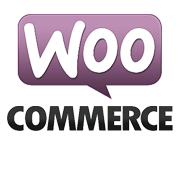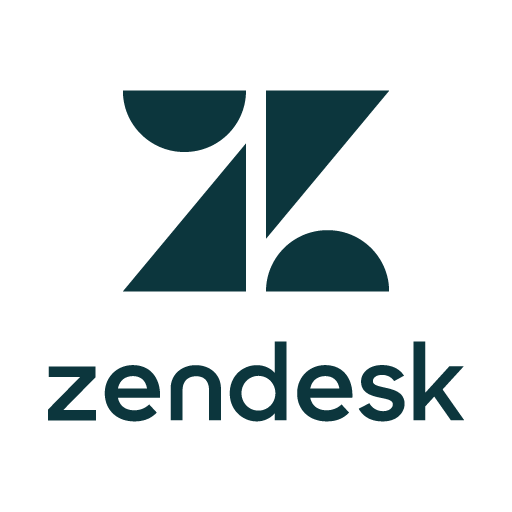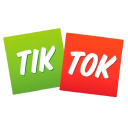
On Starting An Exam Review Program
I am the founder of CMA Exam Academy, a top Certified Management Accountant exam review program. As a CMA and CMA coach, I mentor candidates in my online CMA Exam Academy program through video lectures and weekly accountability follow-ups and check-ins. This has proven to be the key to our students’ outstanding success in attaining their dream of earning the Certified Management Accountant certification.
When I launched CMA Exam Academy, it stood out because of the program’s features. At the time, all CMA test prep providers did not have video lectures, coaching support, or a structured study framework. These were the features I wanted when I was studying for the exam. So I took what was missing in the industry and included it in my program. I was solving the pain points I had and knew others felt the same. Today, our 16-week study framework, unparalleled customer experience, and 90% exam pass rate set us apart by far.
CMA Exam Academy rises above the competition by putting a face to an otherwise ‘faceless’ industry. Buying test prep programs from big corporations is an outdated strategy. People want to do business with people they know, like, and trust. By putting myself front and center, my customers know whom they are doing business with. They get to know me and by extension my brand/business before they decide to study in my program.
What's your backstory and how did you come up with the idea?
I began working as an accounting clerk in college and slowly moved up the ladder. When it was time to choose my major in college, I chose to account because I had gained years of experience in the field so it was the path of least resistance. Years later, I earned my CMA certification and propelled my career further.
Going into business requires a lot of calculated risk-taking. Being able to assess risk and staying resilient in tough times is key.
The CMA exam pass rate was an abysmal 35% on average at the time when I took my exams. I passed both exam parts on my first attempt and thought I could help others do the same. This is when I decided to launch a website and provide guidance and exam coaching as a hobby. As the website visitors grew, requests to teach them the exam content grew with it. So I launched a complete CMA review program for both exam parts. Our unique framework helps our students pass at a 90% rate on average.”
As a CMA and CMA coach, I mentor accounting and finance professionals in over 80 countries to earn their CMA certification in as little as eight months. The unique review framework in CMA Exam Academy has proven to be the key to our students’ outstanding success in attaining their dream of earning the Certified Management Accountant certification.
Take us through the process of designing, prototyping, and manufacturing your first product.
The best part about designing a product or service that addresses a pain point of yours is that building it makes the process fun and engaging. It also gives you confidence in knowing that what you’re building will work. That’s exactly what happened to me when I built CMA Exam Academy back in 2014. By creating study tools and a weekly study framework that would’ve helped me study for my CMA exam, I knew others would appreciate it too.
However, the work didn’t stop there. Product iteration is also a very important aspect of building a profitable product and/or service. Armed with customer feedback, I kept iterating my test prep program to the point where it became very successful at preparing candidates to pass their CMA exam. I used an online tool called Trello to map out my weekly modules and lessons.
Describe the process of launching the business.
Before launching my CMA Exam Academy program, I had already built an audience in the CMA niche via my blog, CMAcoach.com. My audience kept requesting lectures from me and to coach them step-by-step. At the time, self-study was the only option to prepare for the exam. So a step-by-step guided program was much needed.
When I pitched the program to my audience, many voted with their wallets before I even launched the program. I knew the need was there because I had the same needs during my test prep. Building a program that addressed all of those pain points made it a winner right out of the gate. I still had internal doubts because I was competing with major corporations that had been in the study prep niche for decades. However, it didn’t detract me from going for it anyways.
Since launch, what has worked to attract and retain customers?
“I’ve tested many marketing strategies — there are so many to pick from! The key was to not tackle every single strategy all at once, as that’s a recipe for overwhelm. I’ve learned that by focusing on a single marketing strategy at a time, my business grew at a steady pace. I began with SEO primarily. SEO will always be an ongoing marketing strategy since this space evolves every year. Now, I have a dedicated team that oversees SEO and works on it every month.
In terms of customer retention, my team and I go above and beyond for our customers. It’s industry standard to respond to customer emails within 48 to 72 hours. We go above and beyond by responding to our customers’ emails in 24 hours or less. That’s just one example of how we retain customers. Personalization is also a great way to keep customers happy. The founder records and sends custom video messages to each customer. It’s not a scalable activity, but it’s worth the effort from a customer experience and retention standpoint.”
How are you doing today and what does the future look like?
Things are going great today. CMA Exam Academy continues to grow every single year while keeping our exam pass rate at 90% on average. Our team of CMAs plus support staff makes all the difference in the growth of the business and the success of our students. We have students in over 80 countries and continue to expand our reach globally each year.
My favorite part about being an entrepreneur is seeing the positive impact my business has on my customers’ lives. After they get certified, I get emails from them sharing the news that they got a raise or even a promotion at work. This translates into a more fulfilling career and, in many cases, financial freedom. It’s so fulfilling.
Through starting the business, have you learned anything particularly helpful or advantageous?
I learned several lessons, such as:
1) Don't launch a new website and domain for the test prep company. If I had to do it all over again, I would have launched it using my existing domain and website. I thought I had to have a different name for my test prep program, but I really didn't in retrospect. The cost of running two separate domains/operations could've been avoided.
2) Don't rely on a supplier for my study material. I partnered with one of the biggest companies in my space to provide study material to my students. However, when my business took off, I was cut off because I had become a direct competitor of theirs. The lesson learned is that self-reliance is important in business, and the ability to provide your customers with in-house products is a better play in the long run.
3) Begin to network with successful entrepreneurs even before launching a business. The conversations and support from people who've been where you are (about to launch a company) can be such a great support system and motivator. I met two successful entrepreneurs at a business conference a year into my company. We formed a business mastermind group and helped each other grow our companies. After seven years, we continue to have our weekly mastermind calls. It's made all the difference! As the saying goes, ‘your network is net worth.’
What platform/tools do you use for your business?
Some of my favorite tools for my business are:
Trello by far. I have my days, weeks, months, and quarters mapped out in Trello. It's super easy to use with their kanban card digital system. Trello keeps my team and me organized.
Infusionsoft is a fantastic tool for customer communication and lead nurturing.
Wordpress has been great for running my test prep program. It's easy to use and easy to customize, which allows us to deploy changes and updates rather quickly.
What have been the most influential books, podcasts, or other resources?
Atomic Habits by James Clear is a fantastic book to learn about how to build habits the right way. My productivity has increased tenfold thanks to this book. Building habits that last is not only rewarding from a personal level but professionally as well
One podcast I highly recommend is Social Media Marketing with Michael Stelzner. This is a fantastic podcast to learn more about what's working in online marketing — I get many of our marketing strategies from this podcast.
An online course I recommend is the Kwik course, as it provides entrepreneurs with the ability to learn well and fast at the same time. For those who like to learn and don't have enough time to consume it all, this course helps.”
Advice for other entrepreneurs who want to get started or are just starting?
To be a successful business owner, it is important to be skilled in sales and marketing. The ability to know how to get your message out and compete by giving value first is a skill every business leader should have. I didn't learn marketing in college, as I was an accounting major. I had to learn it in the ‘real world’ to grow my business, and it has served me very well.
Having strong financial literacy is also very important to run a successful business and maximize the bottom line. It's practically impossible to stir a ship in the right direction without knowing where it is and where it's going. Financial data provides this information to business leaders.
On top of this, you must have the ability to stomach risk. Going into business requires a lot of calculated risk-taking. Being able to assess risk and staying resilient in tough times is key.
Where can we go to learn more?
You can learn more at:
If you have any questions or comments, drop a comment below!

Download the report and join our email newsletter packed with business ideas and money-making opportunities, backed by real-life case studies.

Download the report and join our email newsletter packed with business ideas and money-making opportunities, backed by real-life case studies.

Download the report and join our email newsletter packed with business ideas and money-making opportunities, backed by real-life case studies.

Download the report and join our email newsletter packed with business ideas and money-making opportunities, backed by real-life case studies.

Download the report and join our email newsletter packed with business ideas and money-making opportunities, backed by real-life case studies.

Download the report and join our email newsletter packed with business ideas and money-making opportunities, backed by real-life case studies.

Download the report and join our email newsletter packed with business ideas and money-making opportunities, backed by real-life case studies.

Download the report and join our email newsletter packed with business ideas and money-making opportunities, backed by real-life case studies.




























